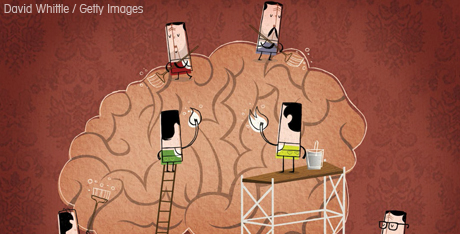When someone holds a grudge, they unwittingly surrender their own happiness to the perceived offender. Can we help our loved ones to reclaim their lost power and remember to forgive?
We’ve all done it — held a grudge, nursed the idea of revenge, and stayed full of anger at someone who hurt us. We seem to get some measure of satisfaction from our anger and are often unwilling to let it go. Eventually, we realize that it doesn’t feel good to be angry, and it turns out it isn’t healthy either. Not physically healthy, where our breathing is short and tight and our blood pressure is high; not emotionally healthy, when our thoughts are wrapped up in anxiety and obsessive thinking; and not spiritually healthy, when we are not able to be quiet and calm inside.
If I am angry at someone … I continually re-experience the hurt.
Michael J. Farrell from the National Catholic Reporter Online writes on forgiveness. In a comprehensive and enlightening article on the topic, he states that “people who refuse to forgive remain in the power of whoever injured them in the first place.” In other words, if we refuse to forgive, we are trapped by the very person with whom we are angry. If I am angry at someone, I am thinking over and over about what they did to me and how I am justified in my anger. I continually re-experience the hurt. Until I forgive him/her, this act by the other person will continue to have a hold on me. I am the one suffering. My inability to forgive is limiting me, keeping me confined in my own anger. It prevents me from feeling well, thinking clearly and growing spiritually.
The ability to forgive is essential to our own personal freedom and to our ability of living a full and enriching life. Remaining angry and resentful obstructs our good feelings of compassion and tolerance; it quite effectively obstructs our own happiness. Forgiveness provides freedom from negative thoughts and therefore the ability to live life more fully in the present.
A few years ago, my son broke his leg while playing Ultimate, a soccerlike sport played with a Frisbee. It was a light-hearted tournament where the teams dressed up in goofy costumes and the competition was real, but not intense. His team was well ahead, and my son was just landing from a jump with the disc in his hand when someone from the other team crashed into his leg and he ended up with a bad break. At his side in the hospital, I saw that he was so angry at the situation and at the person who did this. I talked to him recently and asked how it is for him now, three years later and only recently being able to play sports again, though not at the same level. He said, “It happens and it’s over; you need to move on. To get over it you have to forge a new path; you have to let the past go in order to forge a new future.” He is no longer holding onto his anger, and for that I’m grateful and happy.
Forgiveness does not generally happen all at once. It is a process of letting go a little at a time.
It’s not always so easy to move on. A few years back I facilitated a forgiveness workshop where we took the time to think about who in our lives we needed to forgive. In some cases it was a sibling, parent, an old boss, or business partner that we needed to forgive. One woman hadn’t really recognized before that she was holding resentment against her sister. This woman did some journaling, some imagining, and some releasing of the anger she had with her sibling and found herself happier.
Part of the work of being an elder is letting go of old hurts, with the goal of freeing ourselves of the burden of carrying around these old weights. Part of the work of caring for our elders is to help them along this path. Maybe you are taking care of someone who is still hanging onto a past hurt. How can we help our loved ones to release that anger and pain and begin to realize the hard edge they’ve been adding to their lives?
Rabbi Zalman Schachter Shalomi, a visionary in the aging field, talks about mental housekeeping as one method of managing ones anger so it doesn’t build up. This kind of housekeeping is intended to keep our minds clean of everyday irritations. Perhaps our children haven’t called in a while, or someone has arrived late for dinner; or perhaps someone talks too loud or too much. A daily forgiveness practice where we notice what bothered us that day and perhaps do some deep breathing and letting go can help us to be more light hearted and bring more joy into our lives. You might try this with someone you care for. Set the example for forgiveness, and be open about your own struggles. By acknowledging that these feelings exist, they become easier to face, and cleaning out the cobwebs can be a huge relief.
Maybe this is what Dr. Robert Enright, a professor of educational psychology at the University of Wisconsin-Madison and a leader in the field of forgiveness research, is talking about when he speaks about a “forgiveness consciousness.” With so much stress and anger in the world, he encourages us to develop our awareness in this area. I believe this awareness includes a mature understanding of human behavior, including our own, and encourages us to develop compassion and insight. We can develop our own powers of forgiveness so that they are more readily available when we need them.
Forgiveness does not generally happen all at once. It is a process of letting go a little at a time.
The results are well worth it for ourselves, for others, and for the world.




Sources